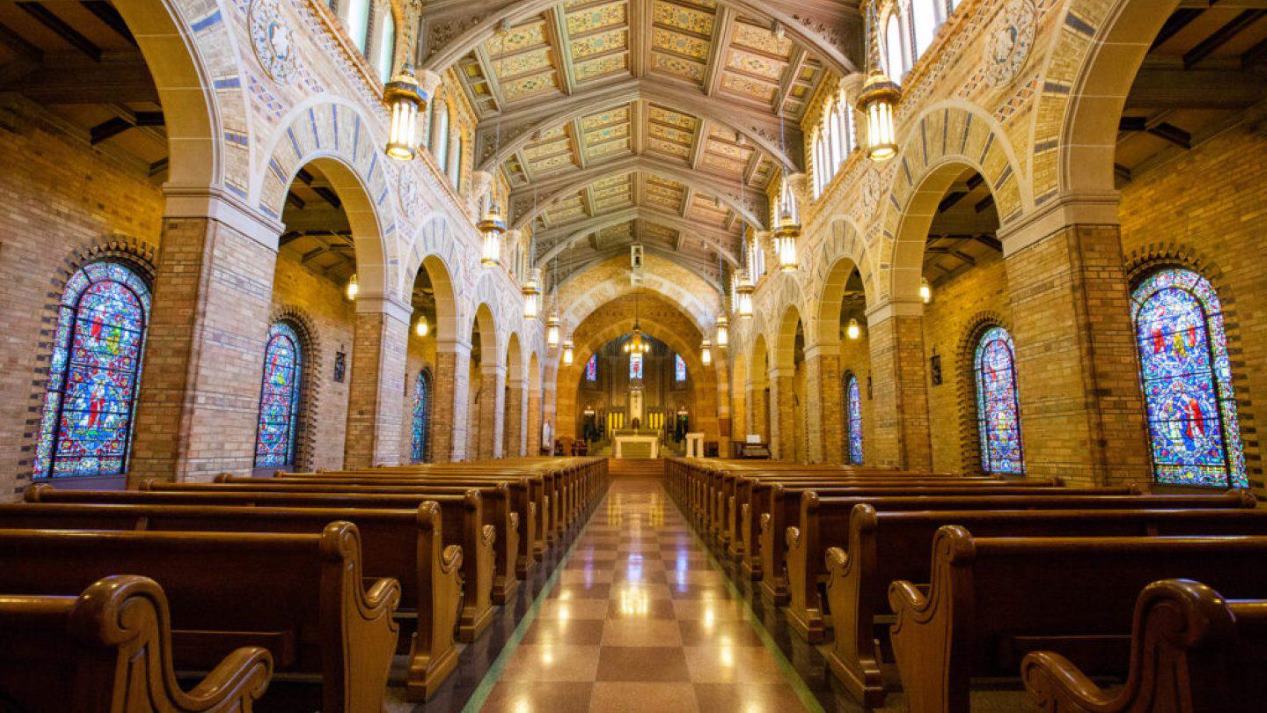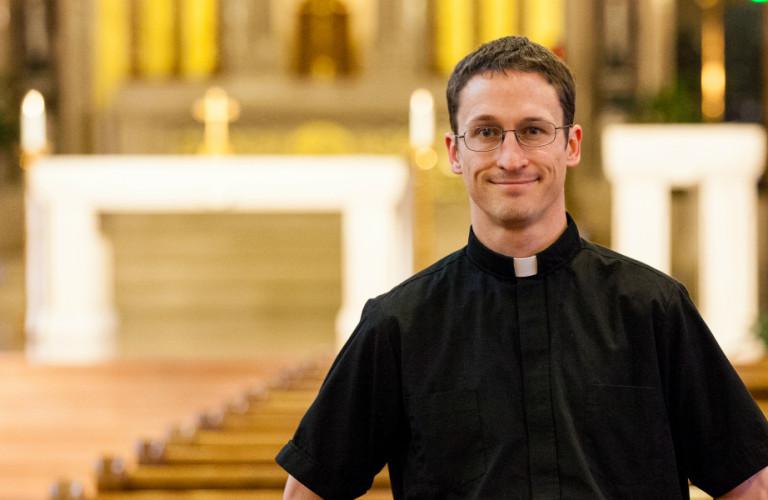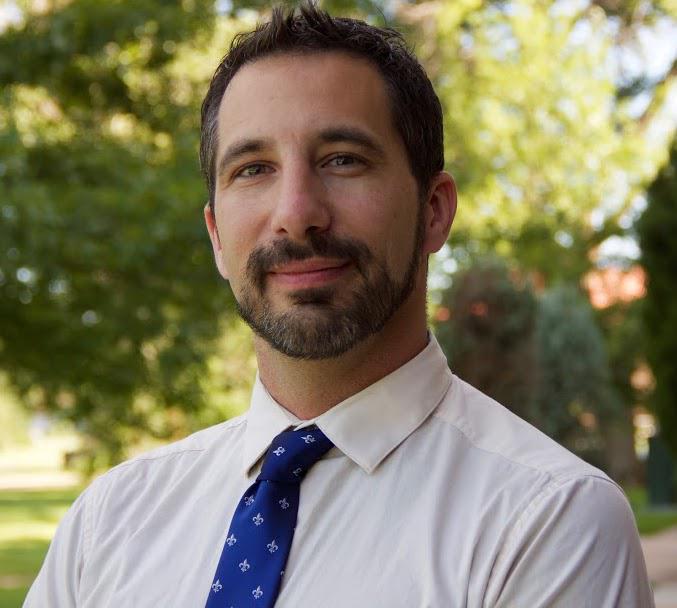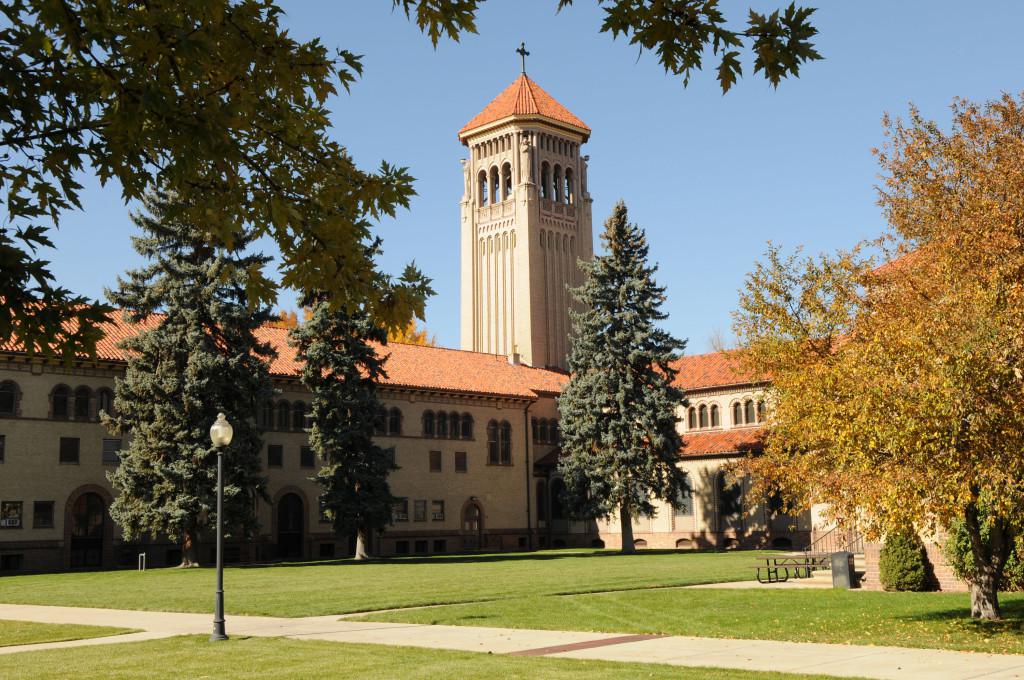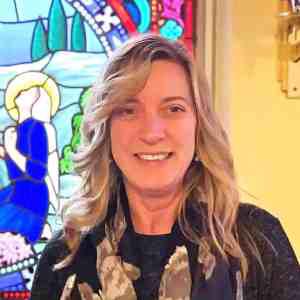|
Wannabe Catholic priests can expect interrogations about porn, psych evaluations and abuse prevention training
By Jennifer Brown
Ahead of a public report about the history of abuse in Colorado, church leaders open up about the protective wall in place to weed out abusers. Victims remain skeptical. Investigators examining decades of child sexual abuse by Colorado priests are expected to release their report within weeks. The reckoning is due, say Catholic leaders, but the public account will sting as it brings a fresh round of damage to the church. “Our psyche at large as a church, as the body of Christ, has just taken so many strikes to the same wound, that just becomes a traumatic experience,” said Father Ryan O’Neill of the Archdiocese of Denver. “Is this stabbing of the same wound over and over again going to hamper the church’s ability to move forward? That’s what trauma does. It makes you turn on yourself.” Bracing for the report’s release, church leaders detailed the changes in policy over the years intended to prevent abusers from entering the priesthood. They include psychological evaluations of men who want to become priests, including probing questions about pornography, sexual urges, homosexuality and narcissism. The church requires every employee and volunteer in a parish or a school to take a two-hour sexual abuse prevention class, which The Colorado Sun was invited to attend. And it has invited victims of abuse to tell their stories to a panel of church volunteers. The Colorado report will mark the end of a review conducted by an independent investigator and announced by the state attorney general in February. The noncriminal investigation is expected to include allegations from at least 65 victims involving a handful of priests who abused children decades ago. It’s unknown whether the review uncovered recent or previously unreported sexual abuse. Archbishop Samuel Aquila has said there have been “zero incidents” of child sexual abuse by priests in the Denver diocese in the past 20 years. But there are two other dioceses in the state, in Colorado Springs and Pueblo. Attorney General Phil Weiser last week announced a settlement fund for victims, who must come forward by Nov. 30. A release date for the investigative report has not been announced, but church officials said it could come late this month. About one-third don’t pass the psych evalThe doorman to the priesthood in Denver is Father O’Neill, who is the church’s vocations director. None of the young men seeking to enter seminary get through without his approval. O’Neill must know a man for at least six months before giving him the go-ahead to even begin the application process, which includes an autobiography, an essay on celibacy and a psychological evaluation. Before he agrees, O’Neill has already struck up a conversation about the man’s relationships with his parents, prior girlfriends, homosexual thoughts or actions. He typically starts this way: “‘I’ve got to ask you about some personal issues because the church is really concerned about what kind of men we are letting in,’’ said O’Neill, who attends Mass near college campuses to recruit young men who might consider the priesthood. “The men who apply expect me to ask those things. They are not offended or upset.” Next up is the psych evaluation, a deep examination of a man’s relationships, anxiety or depression levels, addictions and sexual urges and thoughts — acted on or not. “I can anticipate what is going to come up on a psych eval once I get to know his relationships with his father and mother, how many girlfriends he’s had, have a sense of anxiety levels or trauma,” O’Neill said. Still, he said, there is “always a little bit of a revelation” in the evaluation. About one-third of the men are rejected — either with a “hard no” or “soft no” — because of the psych eval. A hard no means never, while a soft no means the man could apply after taking a few years to deal with whatever was revealed. O’Neill encourages counseling but can’t force anyone to follow up. A man who has “deep-seated” homosexual ideations is not allowed to enter the seminary. It’s a hard no if the man views homosexual pornography. But if a man admits to homosexual thoughts, church leaders might offer him a chance to “work through the roots of the homosexual ideation” and apply to seminary after they are resolved, O’Neill said. Bipolar disorder and personality disorders also disqualify a man from seminary. If a man was abused as a child, that’s a red flag but not necessarily a hard no, O’Neill said. “It is possible to be healthy and stable and grow through that trauma,” he said. “If it’s not taken care of, this probably isn’t going to work.” Addiction issues usually mean a hard no. In three years on the job, O’Neill said he has not encountered anyone who is addicted to alcohol or drugs but has seen young men who want to become priests who are “hard-core addicted to pornography.” They sometimes don’t realize it’s a serious problem until O’Neill or the psychologist points it out. “I’m not saying there is no hope for those guys,” he said, noting those men could work on the addiction through therapy and return five years later. “Seminary is not the place you go to become unaddicted to things.” For those who pass the psych evaluation, there is a 20-page application, a 10-page autobiography and two essays — one on the priesthood and the other on celibacy. The archbishop reads the files before anyone is accepted to the seminary in Denver. Men who violate boundaries are disqualifiedThe most important revelations in a psych evaluation are whether the man is prone to boundary violation or is someone who would take advantage of others, said Jim Langley, a psychologist who does the evaluations for the Colorado Springs and Pueblo dioceses. “These evaluations are really, really thorough,” he said. “They access every aspect of a person’s development and personality. One reason why we are seeing so much less abuse in the church is that the overtly terrible people are already getting weeded out by this psychological evaluation process. There are not that many jobs out there that require this level of scrutiny.” The typical abuser presents as charismatic but has almost no empathy, he said. The questions Langley asks are meant to explore a potential priest’s relationships, specifically focusing on breakups and struggles. “Do they talk about themselves in a narcissistic fashion? Are they able to experience empathy toward other people?” He called the homosexuality question “quite possibly the most complicated question the church is dealing with today.” Langley maintains that a gay man would have a harder time living a life of celibacy in seminary than would a straight man, and that sending a homosexual man to seminary is like sending a straight man who has taken a vow of celibacy to a sorority house. Still, a gay man is not necessarily barred from seminary. “The church doesn’t teach that being a homosexual is a sin — it’s the acting out of homosexuality that is more sinful in nature,” he said. Men who experience “same-sex attraction” that is not frequent or strong can still become priests, Langley said. “However, if the attraction is very strong, the applicant would probably not be admitted to seminary,” he said. “In no way does the church believe that homosexuality leads to child sexual abuse. But, the undeniable reality is that the vast majority of sexual abuse in the church has been male to male.” There has been widespread pushback against the church about its stance on homosexuality since the priest abuse scandals. Earlier this year, gay priests in the Netherlands sent a letter to Pope Francis asking that the church not conflate being gay with abusing children. Langley does about 20 psych evaluations per year, a number that has stayed steady for several years. The young men considering the priesthood today “have grown up with the scandal” and have already factored it into their decision, he said. About two people per month report past abuseLangley’s other job is victim assistance coordinator, taking a couple calls per month from people who were abused by priests as children and are now ready to talk about what happened to them. He is often the first person they have ever told. The psychologist’s number is posted on the archdiocese’s crisis-response page, on posters on parish walls and in the Catholic newspaper. “The media will have people believe that we are sweeping things under the rug and hiding stuff,” he said. “On the contrary, we really strive to be as transparent as possible.” The initial conversation is about building trust, Langley said. The victim — and so far they have all alleged abuse from decades ago — has the option of speaking to a panel of lay professionals who volunteer to listen to victims’ stories. The team includes attorneys who work in child sex abuse prevention, as well as mental health workers. “Telling the story back to the church and hearing a loving and understanding response is really empowering for people,” Langley said. “The most powerful thing that needs to happen is for them to share their story.” The team provides recommendations to the archbishop about what should happen to the accuser, if the priest is still living, and whether policy recommendations are needed. Langley tries to maintain a relationship with the victim, checking on them every six months or so, or when news reports on priest abuse surface, which can trigger trauma. The reports are forwarded to law enforcement when they fall under the legal definition, and sometimes even when they don’t, Langley said. If the accused priest is alive, it’s always reported, he said. The allegations typically involve the same few priests, and the victims are typically now at least 50 years old, he said. “It’s been extremely rare that the priest is even alive,” he said. Most of the abuse survivors, about two-thirds, are people who still attend Mass every Sunday, Langley estimated. “They have wounds, for sure,” he said. “An authority in the church caused them this really deep harm.” “It’s the perfect time to come forward and get support. We don’t want to hide anything. We are also completely committed to cleaning up the mess that was the church 30-plus years ago.” But Jeb Barrett, who runs the Colorado chapter of the Survivors Network for those Abused by Priests (SNAP), is not convinced the church has done enough. “It’s just typical Roman Catholic spin and talking down to people and treating us all like idiots,” he said. “The fact that they say they are reporting them now doesn’t mean they are actually doing it.” Barrett, who was abused by a priest in Montana more than 60 years ago, helped push for the review of the church’s files in Colorado. He and others from SNAP asked former Attorney General Cynthia Coffman for a grand jury investigation, which led to the more restricted, ongoing review. Barrett, who is gay, also took issue with the church’s focus on homosexuality. “They have tried to say that the problem is homosexuality in the priesthood,” he said. “That’s bogus.” College graduates have higher success rateThe Denver seminary receives nine applications in a typical year and in recent years has accepted from four to eight candidates, Father O’Neill estimated. The sample size is small, but O’Neill believes there was a drop in applications after the 2018 Pennsylvania grand jury report that uncovered sexual abuse allegations involving 301 priests and more than 1,000 children. O’Neill, 35, was ordained at age 28, one of the youngest new priests. He is basically a recruiter, though he doesn’t set up tables on university campuses to solicit young men for the priesthood. Instead, he visits parishes once per semester near college campuses in Boulder, Greeley and Fort Collins, because any college student considering the priesthood is likely going to Mass at the local parish. O’Neill also holds monthly “discernment retreats,” which are reflective, prayerful events that help men discern God’s will. Men who pursue the seminary after college have better odds of becoming priests than those who go straight from high school to the seminary — about a 60% completion rate compared with 40%, O’Neill said. He is mentally preparing for the release of the Colorado investigation, which is not expected to compare in scale to the Pennsylvania report but still has many in the church feeling “violated,” he said. “We’re just feeling kind of vulnerable, like people are looking for stuff to find that’s bad about me,” he said. Sex-abuse awareness training is requiredUnlike public school districts, the Catholic school system does not allow parents or others to volunteer in a classroom without first completing a two-hour safety training course held several times each year across the state. All church employees and those who want to volunteer in a parish must take the sex-abuse prevention course, too. At a recent training at the Archdiocese of Denver, Christi Sullivan, a protection specialist, began by telling attendees: “This isn’t easy stuff to hear. This isn’t easy stuff to say. If you need a break, go take a break.” Indeed, one woman left the room to cry while Sullivan was talking and a man became combative with another participant during a heated discussion about whether it’s more socially acceptable these days for teachers and students to hug. The class, which includes a video in which actors play the roles of abusers, children and their parents, describes the warning signs of abuse and offers adults the words to say when they suspect another adult or teen is acting inappropriately. The training has been required since the early 2000s, after the priest sex-abuse scandal was uncovered by The Boston Globe. Since 2003, about 70,000 adults have taken the course through the Archdiocese of Denver, Sullivan said. Almost 90% of the time, attendees learn, a person sexually abusing a child is known to the child’s family — one-third of those are family members and the other two-thirds are coaches, friends, teachers, neighbors or religious leaders. Sullivan, director of the archdiocese’s Office of Child and Youth Protection, considers her work part of the church’s healing process — and it’s a long process. “The bad news just keeps popping up,” she said, “and I don’t think the good that we’ve done has been publicized.” Contact: jennifer@coloradosun.com
|
.
Any original material on these pages is copyright © BishopAccountability.org 2004. Reproduce freely with attribution.
